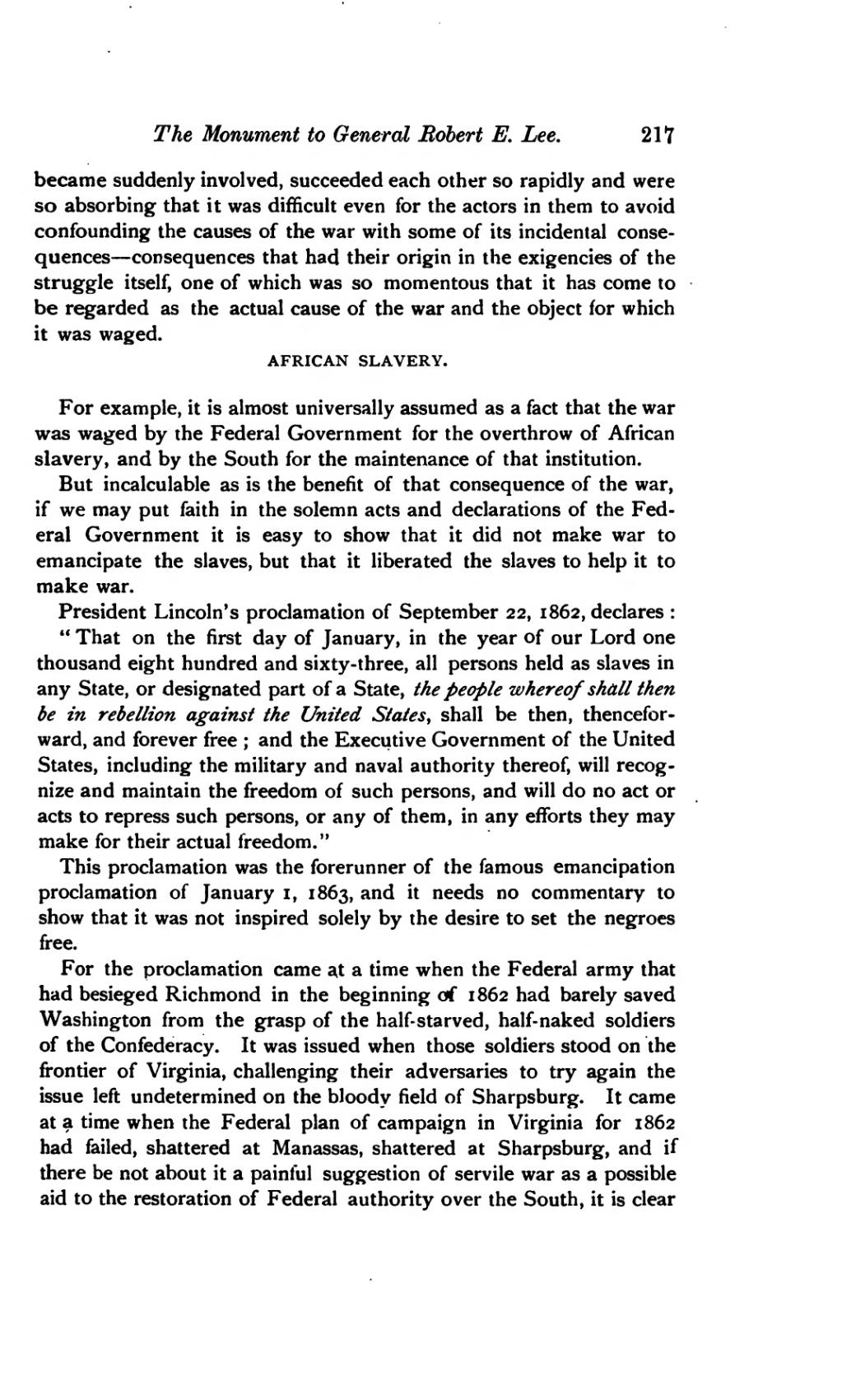The Monument to General Robert E. Lee, 217
became suddenly involved, succeeded each other so rapidly and were so absorbing that it was difficult even for the actors in them to avoid confounding the causes of the war with some of its incidental conse- quences — consequences that had their origin in the exigencies of the struggle itself, one of which was so momentous that it has come to be regarded as the actual cause of the war and the object for which it was waged.
AFRICAN SLAVERY.
For example, it is almost universally assumed as a fact that the war was waged by the Federal Government for the overthrow of African slavery, and by the South for the maintenance of that institution.
But incalculable as is the benefit of that consequence of the war, if we may put faith in the solemn acts and declarations of the Fed- eral Government it is easy to show that it did not make war to emancipate the slaves, but that it liberated the slaves to help it to make war.
President Lincoln's proclamation of September 22, 1862, declares :
" That on the first day of January, in the year of our Lord one thousand eight hundred and sixty-three, all persons held as slaves in any State, or designated part of a State, the people whereof shall then be in rebellion against the United States, shall be then, thencefor- ward, and forever free ; and the Executive Government of the United States, including the military and naval authority thereof, will recog- nize and maintain the freedom of such persons, and will do no act or acts to repress such persons, or any of them, in any efforts they may make for their actual freedom."
This proclamation was the forerunner of the famous emancipation proclamation of January i, 1863, and it needs no commentary to show that it was not inspired solely by the desire to set the negroes free.
For the proclamation came at a time when the Federal army that had besieged Richmond in the beginning of 1862 had barely saved Washington from the grasp of the half-starved, half-naked soldiers of the Confederacy. It was issued when those soldiers stood on the frontier of Virginia, challenging their adversaries to try again the issue left undetermined on the bloody field of Sharpsburg. It came at a time when the Federal plan of campaign in Virginia for 1862 had failed, shattered at Manassas, shattered at Sharpsburg, and if there be not about it a painful suggestion of servile war as a possible aid to the restoration of Federal authority over the South, it is clear
